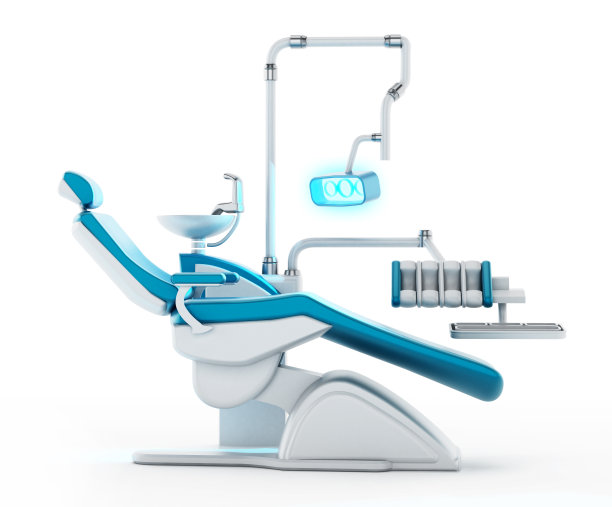Summary: Dental implant procedures can significantly enhance oral health and restore lost functionality. However, prior to undergoing these treatments, it is critical to consider several essential precautions to ensure the best outcomes for the surgery. This article outlines key factors including evaluating candidacy for implants, understanding the procedure, managing finances, and post-operative care. Each of these aspects will provide individuals with a comprehensive understanding of what to expect, leading to informed decisions and optimal results. Careful consideration of these precautions can ultimately enhance the success rate of dental implants and improve overall oral health.
1. Evaluate Your Candidacy for Implants

The first step in considering dental implants is to evaluate whether you are a suitable candidate. Ideally, candidates should have adequate bone density in the jaw to support the implants. A consultation with a dental specialist can help assess your unique oral and medical conditions. This evaluation may include imaging tests such as X-rays or CT scans to visualize the jaw structure.
Moreover, medical history plays an essential role in determining candidacy. Certain health issues, such as uncontrolled diabetes or heart disease, may complicate the implant process. Additionally, individuals who smoke or consume excessive alcohol should address these habits, as they can interfere with the healing process and increase the risk of complications.
Lastly, a thorough understanding of your overall dental health is vital. Pre-existing conditions like periodontal disease could create challenges for the success of implants. Therefore, addressing these issues before considering implant placement is crucial for achieving long-term oral health benefits.
2. Understand the Dental Implant Procedure
Understanding the dental implant procedure is essential for alleviating any apprehension you might have. The process typically involves multiple stages. Initially, the implant, which is a titanium post, is surgically placed into the jawbone. Following this, the body requires time to heal and allow the bone to integrate with the implant, a process called osseointegration.
Once healing is complete, the second stage involves placing an abutment, which is a connector piece that holds the crown. Finally, a custom crown is crafted to match the surrounding teeth and is securely attached to the abutment. Awareness of each stage helps to set expectations and prepare emotionally and physically for each step of the procedure.
Its also important to discuss potential risks and complications with your dentist. Understanding what could go wrong can empower you to follow necessary precautions during recovery. Such transparency fosters trust between you and your dental team and prepares you adequately for the procedure.
3. Manage Your Finances for the Procedure
Financial considerations are another critical aspect to weigh before proceeding with dental implants. The cost can vary widely depending on several factors, including the implants material, the complexity of the procedure, and your location. Consulting with your dental provider about the expected costs and possible insurance coverage can provide clarity.
It’s beneficial to explore different financing options if you are concerned about the financial burden. Many dental offices assist patients with financing plans or partnerships with third-party lenders that offer manageable payment terms. Understanding your financial options ensures you won’t be taken by surprise and can plan ahead without undue stress.
Moreover, think long-term regarding the investment. Dental implants, while initially more costly than dentures, offer a permanent solution that can enhance overall quality of life. Weighing the initial expense against benefits like durability and functionality can help you make a sound decision regarding your oral health investment.
4. Plan for Post-Operative Care and Recovery
The journey does not end once the dental implant procedure is complete; in fact, post-operative care is crucial for success. Following your dentist’s instructions carefully is paramount. This may include dietary restrictions, oral hygiene practices, and medications to manage pain or prevent infection.
Being aware of normal recovery signs versus potential complications is also essential. Swelling and discomfort are expected, but if you experience severe pain or prolonged bleeding, you must contact your dentist immediately. Keeping communication open can mitigate potential issues and ensure a smooth recovery process.
Additionally, incorporating routine check-ups into your schedule after receiving dental implants will help maintain optimal oral health. These visits allow for regular monitoring of the implants and surrounding tissues, ensuring that everything remains in good condition over time. A proactive approach to your dental care encourages longevity for your implants.
Summary:
In summary, before undergoing dental implant procedures, it is crucial to evaluate your candidacy, understand the process, manage financial implications, and prepare for post-operative care. Each of these steps contributes to a higher probability of success and improved overall oral health.
This article is compiled by Vickong Dental and the content is for reference only.
Vickong Dental
Vickong Dental is a large medical group established in Hong Kong in 2008 by professors from well-known medical universities in Guangdong and Hong Kong, as well as medical doctors from key national '985' universities (including Master's supervisors and senior professors). The chain of branches brings together expert dentists with PhDs and Master's degrees from Hong Kong and Mainland China, committed to providing high-quality dental treatment.
"Vickong Dental Practices the University Motto of 'Healing and Serving Society,' with a Stable Operation for Sixteen Years. It Has Been honored with Hong Kong Enterprise Leaders's Choice,' and is a Global Trusted Implant Center for the Nobel Implant System. Recommended by Hong Kong Metro Broadcast and Guangdong Television, it Serves Customers from Over Thirty Countries and Regions, Gaining the Trust and Favor of Citizens from the Guangdong-Hong Kong-Macau Greater Bay Area and Surrounding Cities.

Thousands of customers' unanimous praise
The most recognized and highly recommended dental service by customers in the Guangdong-Hong Kong-Macau Greater Bay Area
We Ensure You Receive Detailed Care and Attention Here
Hong Kong standards, Shenzhen prices, Your Trusted English-speaking dentists

Vickong Dental Medical-Grade Instrument Disinfection Process
Vickong Dental Medical-Grade Instrument Disinfection Process

Vickong Dental Chain: A Warm and Comfortable Environment for Treatment






Appointment Hours

Q&A
Why choose Vickong Dental?
Vickong Dental practices the university motto 「Medicine to Benefit Society」, with each branch bringing together highly qualified dentists with doctoral and master’s degrees from Hong Kong and the Mainland, and has maintained seventeen years of steady operation。Recipient of 「2024 Hong Kong Enterprise Leaders Brand」, 「2025 Hong Kong Enterprise Leaders Brand」, a Nobel Biocare Global Trusted Implant Center, and a brand recommended by Metro Radio Hong Kong and Guangdong TV。
To date, we have served customers from more than thirty countries and regions,earning exceptionally high word-of-mouth recognition and trusted recommendations from residents across the Guangdong-Hong Kong-Macao Greater Bay Area and surrounding cities
We have eight major branches in Zhuhai、Shenzhen,and a consultation and service assurance center in Hong Kong,so you can book a free consultation at any time for any questions,which is very reassuring.
If I do not accept the quotation after the CT scan, will I be charged??
No! As long as the actual treatment has not started, you will not be charged any fees.
Will there be any additional charges during the treatment process?
No, there won’t be any additional charges. Before treatment begins, we will clearly explain the treatment plan and its corresponding fees. Only after the patient agrees and signs the consent form will we proceed with the dental service.
Can I pay in Hong Kong dollars?
Yes. Vickong Dental accepts payment in Hong Kong dollars. The amount will be converted based on the exchange rate of the day, and the applicable rate will be clearly communicated to you in advance.
Can I reschedule my appointment at any time?
Yes. Please contact us via **WeChat** or **WhatsApp** as early as possible, providing your original appointment time and details, along with your preferred new date and time slot for rescheduling.













